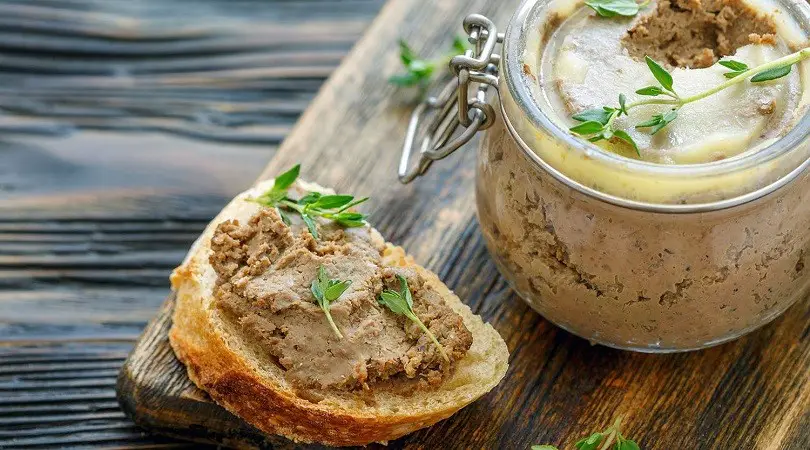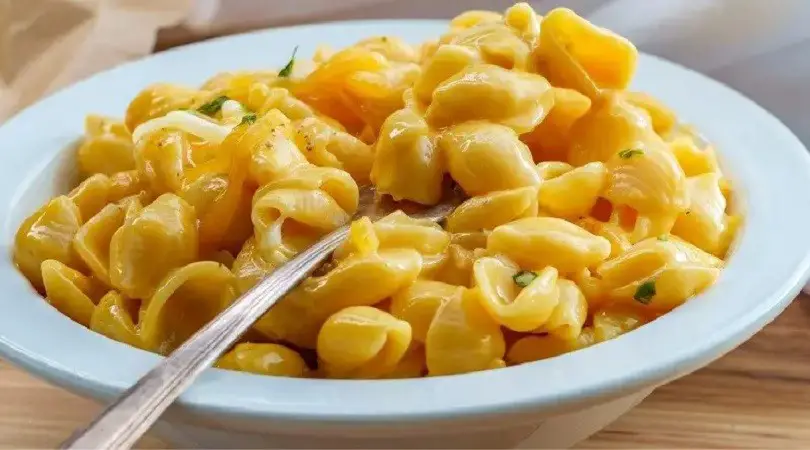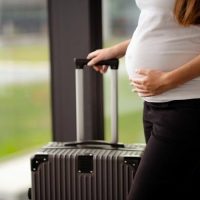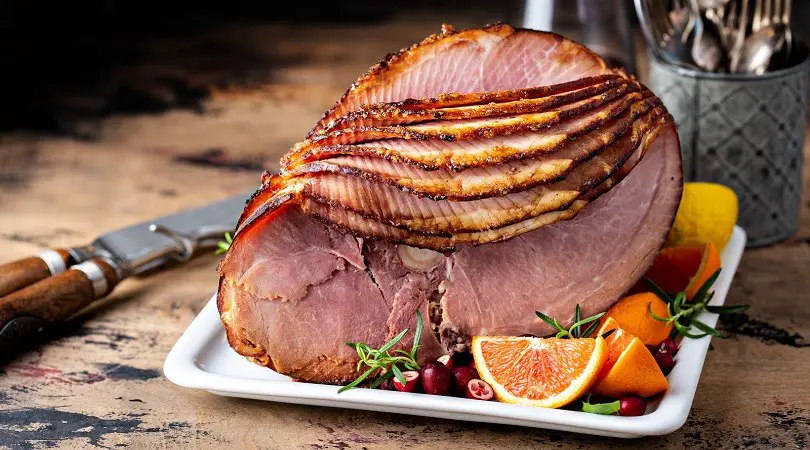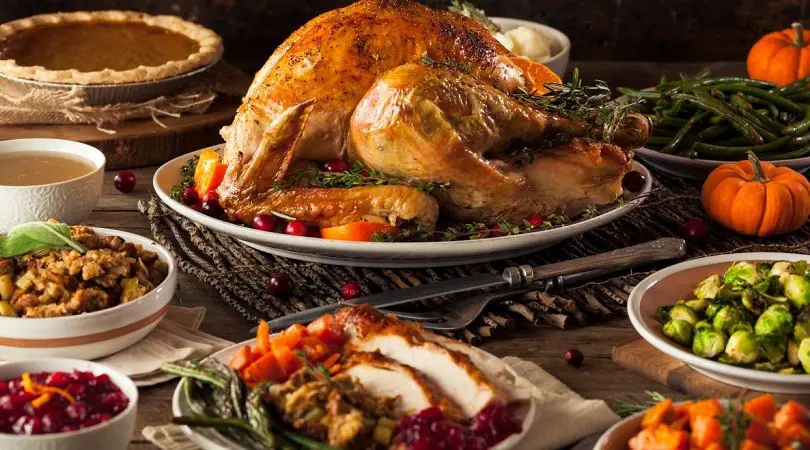Last Updated on October 15, 2024
Yes, you can eat pate when pregnant, but only if it is cooked thoroughly. Pate should be heated to kill any potential bacteria that could harm the baby.
Pate is a popular delicacy enjoyed by many, but when you’re pregnant, your dietary choices require extra caution. It’s important to be mindful of what you consume during this crucial time for the well-being of both you and your baby.
One of the concerns with pate is the risk of harmful bacteria, such as listeria, which can lead to severe complications, including a higher risk of miscarriage or stillbirth. However, it is safe to eat pate during pregnancy as long as it is cooked fully. Cooking pate helps to eliminate any potential bacteria and ensures it is safe to enjoy. In this article, we will delve deeper into the guidelines for consuming pate during pregnancy to help you make informed dietary choices.

Credit: www.babycentre.co.uk
Understanding The Risks
Pregnancy is a time when dietary choices are crucial for the health of both the mother and the developing baby. One food item that often sparks confusion among expecting mothers is pate. Pate is a popular spread made from liver, meat, or vegetables that is often enjoyed as an appetizer or sandwich filling.
However, when it comes to eating pate during pregnancy, there are some potential risks that need to be considered. Let’s delve deeper into what pate is, the importance of a healthy diet during pregnancy, and the potential risks associated with consuming pate.
What Is Pate?
- Pate is a spread made from liver, meat, or vegetables that is cooked and pureed into a smooth paste-like consistency.
- It is typically seasoned with herbs, spices, and sometimes alcohol to enhance its flavor.
- Pate can be enjoyed on crackers, toast, or as a filling in sandwiches or pastries.
Importance Of A Healthy Diet During Pregnancy
Maintaining a healthy diet during pregnancy is of utmost importance to ensure the well-being and proper development of the baby. A nutritious diet can provide essential nutrients and vitamins needed for the baby’s growth while also supporting the mother’s health.
Here are some key points to consider:
- A balanced diet rich in fruits, vegetables, whole grains, lean proteins, and dairy products is recommended.
- Adequate intake of nutrients such as folic acid, iron, calcium, and omega-3 fatty acids is crucial.
- Eating regularly and staying hydrated are important for maintaining energy levels and reducing the risk of pregnancy complications.
Potential Risks Associated With Eating Pate
While pate can be a delicious addition to meals, it is important to be aware of the potential risks it poses during pregnancy. Here are the key points to consider:
- Contamination: Pate, especially the ones made from liver, might carry harmful bacteria such as listeria monocytogenes, which can cause foodborne illnesses like listeriosis.
- Listeriosis: Listeriosis can be particularly dangerous for pregnant women as it can lead to miscarriage, stillbirth, or severe illness in newborns.
- Alcohol content: Some types of pate may contain alcohol, which should be avoided during pregnancy due to its harmful effects on fetal development.
It is advisable for pregnant women to exercise caution and consult with their healthcare provider before consuming pate or any other potentially risky foods. Opting for safer alternatives or thoroughly cooking homemade pate can help reduce the risks associated with consumption.
Remember, a well-informed decision is the best way to protect the health of both the mother and the baby.
Types Of Pate To Avoid
High-risk pates to steer clear of during pregnancy:
- Liver pate: It is best to avoid liver pate during pregnancy due to its high vitamin a content. Excessive consumption of vitamin a has been associated with an increased risk of birth defects.
- Game meat pate: Game meats, such as venison or rabbit, can carry a higher risk of contamination with bacteria like listeria. Listeriosis can be harmful to both the mother and the developing baby.
- Smoked fish pate: While fish is generally considered a healthy choice during pregnancy, smoked fish pate should be avoided due to the risk of listeria contamination. It’s always better to be safe than sorry.
- Soft cheese pate: Soft cheeses, like brie or camembert, are often used in pates. These cheeses are more likely to contain listeria, so it’s advisable to avoid consuming any pate made with them.
Avoiding certain ingredients in pate:
- Raw or undercooked ingredients: Pate might contain raw or undercooked meats, seafood, or eggs which can pose a risk of foodborne illnesses. Make sure your pate is thoroughly cooked to minimize any potential risks.
- Unpasteurized ingredients: Pate made with unpasteurized dairy products or other ingredients can increase the risk of bacterial infections. Always opt for pate made with pasteurized ingredients during pregnancy.
Precautions to take when dining out or eating at social gatherings:
- Read labels carefully: When purchasing pate from stores or restaurants, read the labels to ensure it doesn’t contain any high-risk ingredients. If in doubt, it’s best to avoid it altogether.
- Choose safe alternatives: Opt for vegetable-based pates or those made with cooked ingredients, rather than those containing high-risk components. This way, you can enjoy pate without worrying about potential risks.
- Communicate with your server or host: If dining out or attending a social gathering, inform your server or host about your pregnancy and any dietary restrictions you may have. They can guide you toward safe choices and help ensure your meal is prepared with utmost care.
Remember, pregnancy is a special time, and taking precautions when it comes to your diet is essential. By avoiding high-risk pates and being mindful of the ingredients used, you can continue to enjoy a varied and nutritious diet without compromising your health or that of your baby.
Frequently Asked Questions On Can You Eat Pate When Pregnant?
Can You Eat Pate While Pregnant?
Yes, you can eat pate while pregnant, but only certain types. Avoid liver pate due to high vitamin a content.
Is It Safe To Eat Pate During Pregnancy?
Yes, it is generally safe to eat pate during pregnancy, as long as it is properly cooked and pasteurized.
What Types Of Pate Should Pregnant Women Avoid?
Pregnant women should avoid pate made with liver, as it can contain high levels of vitamin a, which can be harmful in excess.
What Are Safe Alternatives To Liver Pate During Pregnancy?
Safe alternatives to liver pate during pregnancy include vegetable pate, fish pate, or any pate made without liver.
Are There Any Risks Associated With Eating Pate While Pregnant?
There is a slight risk of foodborne illness from eating pate while pregnant, so it’s important to choose safe, properly handled options.
Conclusion
Consuming pate during pregnancy requires caution due to the potential risks it poses to expectant mothers and their unborn babies. While some types of pate, such as vegetable-based or fully cooked varieties, are generally considered safe for pregnant women, others like liver pate can contain high levels of vitamin a and harmful bacteria.
It is essential for pregnant women to consult their healthcare provider before adding pate to their diet. By discussing any concerns or dietary restrictions with a medical professional, pregnant women can make informed decisions about the foods they consume. Remember, maintaining a balanced and nutritious diet is crucial for the health and well-being of both the mother and the developing baby.
Prioritize safe and healthy food choices during pregnancy to ensure a smooth and worry-free journey towards parenthood.

